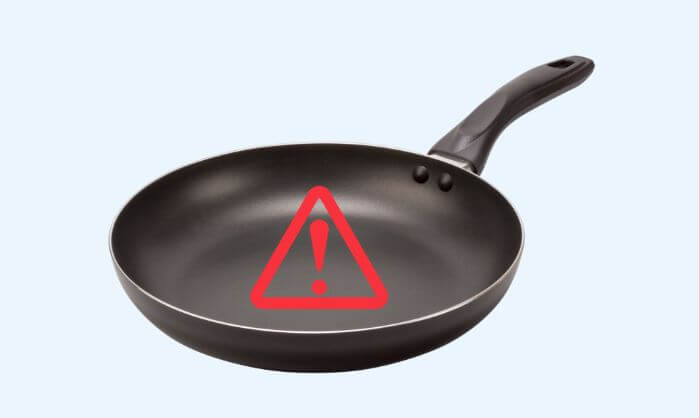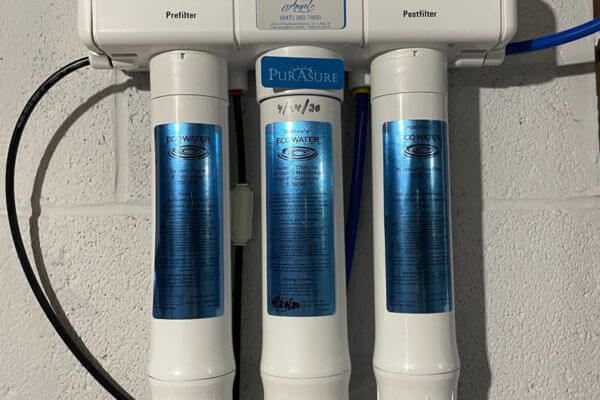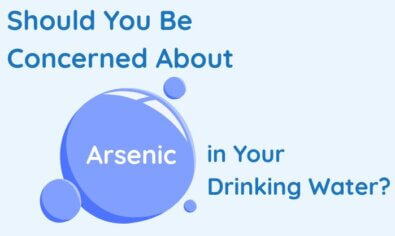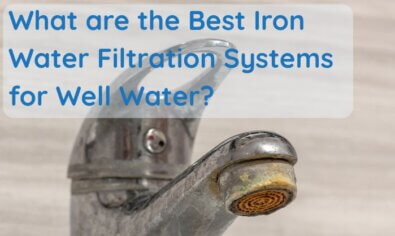Does a PFOS Water Filter Remove Toxins and Contaminants?
If you’re a home owner in Northern Illinois, you may be wondering if PFOS water filters are a smart buy.
Communities across the state are facing alerts about these harmful chemicals — and families are starting to ask the right questions.
Are PFOS water filters effective? What are PFOS chemicals in the first place? And what’s the best way to protect you and your family’s health?
This article covers:
- What are PFAS (PFOA and PFOS), and why are they bad for your health
- Recent Illinois EPA alerts about PFOS in your communities
- Different types of PFOS water filters that can remove these chemicals
- Why reverse osmosis filters work best for removing PFOS
- How to pick the right water filter for your home
Let’s dive in!

What are PFOS Chemicals?
PFOS stands for Perfluorooctane Sulfonate. It belongs to a family of synthetic chemicals. These chemicals are called PFAS. PFAS is short for per- and polyfluoroalkyl substances.
These are called “forever chemicals.” This is because they don’t break down easily. Moreover, they don’t break down in the environment. Or in the human body.
Because of this, PFOS water filters are important. They reduce long-term exposure. They also keep your family’s water safe.
Where Do PFOS Chemicals Come From?
PFOS have been in use since the 1930s. Therefore, you’ll find them in many products.
These include common household items like:
- Non-stick pans (like Teflon)
- Waterproof jackets and shoes
- Stain-proof carpets and furniture
- Microwave popcorn bags and fast-food wrappers
- Firefighting foam
- Factory processes
Eventually, these chemicals enter our water supply. In fact, they are released through several sources:
- Factory waste
- Sewage treatment plants
- Farm run-off
- Landfills
- Disaster cleanup
PFAS are very stable chemicals. Because of this, they build up over time. They accumulate in water, soil, and wildlife.
Furthermore, they can be found in human bloodstreams.
Health Risks: Why Are PFOS and PFAS Harmful?
PFOS health effects are well-documented. In fact, research shows something alarming. Over 98% of Americans have these chemicals in their blood.
The U.S. Geological Survey has more bad news. At least 45% of the nation’s tap water contains PFAS.
Even small amounts of PFOS can be harmful. For example, it causes problems in children. It has been linked to lower antibody levels.
When it comes to adults, there are more issues. It may increase cholesterol. Additionally, PFOS can also cause other health problems.
Moreover, PFOS is linked to serious conditions:
- Kidney and testicular cancer
- Liver and kidney damage
- Hormonal problems (especially thyroid issues)
- High cholesterol levels
- Lower birth weights in babies
- Weakened immune response to vaccines
- Overall immune system problems
PFOS is especially dangerous for pregnant women. It can pass through the placenta. This means it reaches the developing baby.
As a result, PFOS can cause high blood pressure. Additionally, it can cause developmental delays.
Yet, even small, repeated exposures have lasting effects. That’s why regular testing is essential.
Illinois EPA Alerts: What’s in Your Water?
In April 2025, something important happened. The Illinois EPA issued several health advisories about drinking water. Specifically, they concerned elevated levels of PFOS and PFOA.
Which Communities Are at Risk for PFOS Health Effects?
Do you live in or near these towns? If so, your tap water may have unsafe PFOS levels:
This problem affects many. More than 438,000 people rely on these water systems. These cities are working on solutions. However, these changes take time.
Consequently, many homeowners are taking action. They are fixing this issue at home.
Do you use a private well? Then it’s even more important to test your water now. A licensed professional can help you test for PFOS and PFAS.
How Can You Protect Your Family from PFOS?
The best protection comes from certified PFOS water filters. They should also remove other harmful chemicals.
However, not all filters work the same. Therefore, it’s very important to choose carefully.
Many water filters don’t remove PFOS and PFAS. They do very little to help. Instead, you should talk to a professional.
Consult with a licensed plumber and water filtration expert. This ensures you get the best protection.
What to Look for in PFOS Water Filters
Many popular products don’t do the job. For instance, standard pitchers only improve taste and smell. The same is true for faucet attachments. Unfortunately, they do not remove PFOS or PFOA.
To work properly, filters need special certification. Consequently, a filter must be tested for these specific contaminants.
Therefore, look for these certifications. Search for NSF/ANSI standards 53 or 58:
- NSF/ ANSI Standard 53: These filters reduce health-based contaminants. This includes some PFAS.
- NSF/ ANSI Standard 58: This applies to reverse osmosis systems. These have been tested to remove PFOS and PFOA.
Which Water Filters Actually Remove PFOS?
Several types of PFOS water filters can help.
Granular Activated Carbon (GAC) Filters:
- GAC filters use carbon to absorb PFAS chemicals.
- Their effectiveness depends on design. Additionally, it depends on maintenance.
- Some GAC filters can reduce PFOS.
- However, not all are certified for this purpose.
Ion Exchange Resins:
- These filters swap PFAS ions for safe ions.
- They work well against certain PFAS.
- However, they may not remove all contaminants. This includes bacteria and certain chemicals.
Reverse Osmosis (RO) Systems:
- Reverse osmosis is the best method for removing PFOS and PFOA.
- They remove up to 99% of PFOS and PFOA. They also remove dozens of other contaminants.
- RO is the most reliable PFOS filter available.
Why Reverse Osmosis Is the Best PFOS Water Filter Option
Reverse osmosis systems are the gold standard. They remove PFOS effectively. In addition, they’re affordable.
Here’s why:
Multi-Stage Filtration:
A quality RO system has several layers of protection. As a result, it delivers very pure water.
Is Your Water Clean? Get a Free Water Test Today!
Unsure if your water needs filtration? Get a free water test to check your water quality and see if a filtration system can help provide clean, safe water for your home.

Certified for Safety:
The top RO systems have third-party certification. Thus, they remove PFOS and PFOA to safe levels.
Easy to Install:
Most RO units go under the kitchen sink. Furthermore, they come with a special faucet. This
gives you clean, filtered water on demand.
Cost-Effective Long-Term:
RO systems cost more upfront. However, they save money over time. They’re cheaper than bottled water. Also, they’re also better than less effective filters.
Other filter types may claim to reduce PFOS. However, they often lack proper certification. Additionally, they lack the multi-stage treatment needed. This means they don’t give consistent results.
How Reverse Osmosis Works
Reverse osmosis systems push water through a special membrane. This membrane has very tiny pores.
These pores are small enough to block PFAS molecules. In addition, they filter out many other harmful materials.
RO systems have multiple filtration stages:
- Sediment filter: Removes visible particles
- Carbon block filter: Absorbs chlorine and odor
- RO membrane: Traps PFAS, heavy metals, and other tiny contaminants
- Polishing filter: Improves taste and clarity
In effect, this combination provides maximum protection. It protects you from PFOS health effects.
The Benefits of Reverse Osmosis Systems as a PFOS Filter and More
Reverse osmosis systems offer many benefits. This is especially true when used as PFOS water filters.
One of the biggest advantages is their range. They can remove many different harmful contaminants.
Therefore, these systems work well as a PFOS filter. They also work well for other pollutants. These include lead, arsenic, and nitrates.
Many families notice a big difference. Their water tastes and smells better. Consequently, drinking water becomes easier. This means you’ll stay better hydrated.
For this reason, reverse osmosis systems make your water much safer. They protect you and your family.

How to Choose the Right PFOS Filter for Your Family
Here are steps you can take to protect your family from PFOS:
- First, get your water tested: Find out if PFOS or other PFAS chemicals are present.
- Then, look for certified filters: Choose filters with NSF/ANSI 53 or 58 certification. Make sure they remove PFOS and PFOA.
- Next, consult with a professional: Talk to the professional plumbers at Angel Water. Also talk to their water filtration experts.
- Additionally, decide on the system type: Choose between point-of-use systems or whole-house systems. Point-of-use systems go under the sink.
- Finally, get professional installation: Water treatment products must meet state codes. The IL Department of Public Health has requirements. They require a licensed plumber to install all such equipment.
Frequently Asked Questions About PFOS Water Filters
Can boiling water remove PFOS?
No, boiling water does not remove PFOS.
In contrast, boiling may make the problem worse. It concentrates the chemical by evaporating water. This leaves the PFOS behind. Only specialized PFOS water filters can remove them.
Do all filters remove PFOS?
No. Only certain filters work effectively. They must be tested and certified to reduce PFOS and PFOA.
How often should I replace my filter?
Check the manufacturer’s recommendations. Most filters need changing every 6 to 12 months.
What if I have a private well?
Have your well water tested regularly. If PFAS are found, act quickly. Install a certified PFOS filter right away.
Final Thoughts: Act Now to Stay Safe
PFOS and other PFAS chemicals are a growing concern. Your home in Illinois could be at risk.
However, the good news is simple. And, you can act today.
In fact, reverse osmosis systems work very well. They remove PFOS, PFOA, and many other harmful substances. Furthermore, they’re reliable. They’re also convenient and cost-effective over time.
With PFOS water filters, you can protect your family’s health. Additionally, you can enjoy safe, clean water at home.
Are you concerned about PFOS in your water? Well, don’t wait! The licensed professionals at Angel Water are here. We can help you choose the right filter for your home.
So, call Angel Water today to schedule a test and start enjoying clean, safe water tomorrow!
Find the Best Water Filter – Schedule an Appointment Now!
Ensure your home has clean, safe water with the right filtration system. Schedule an appointment with our specialists today to discover the best filter for your household’s needs.



